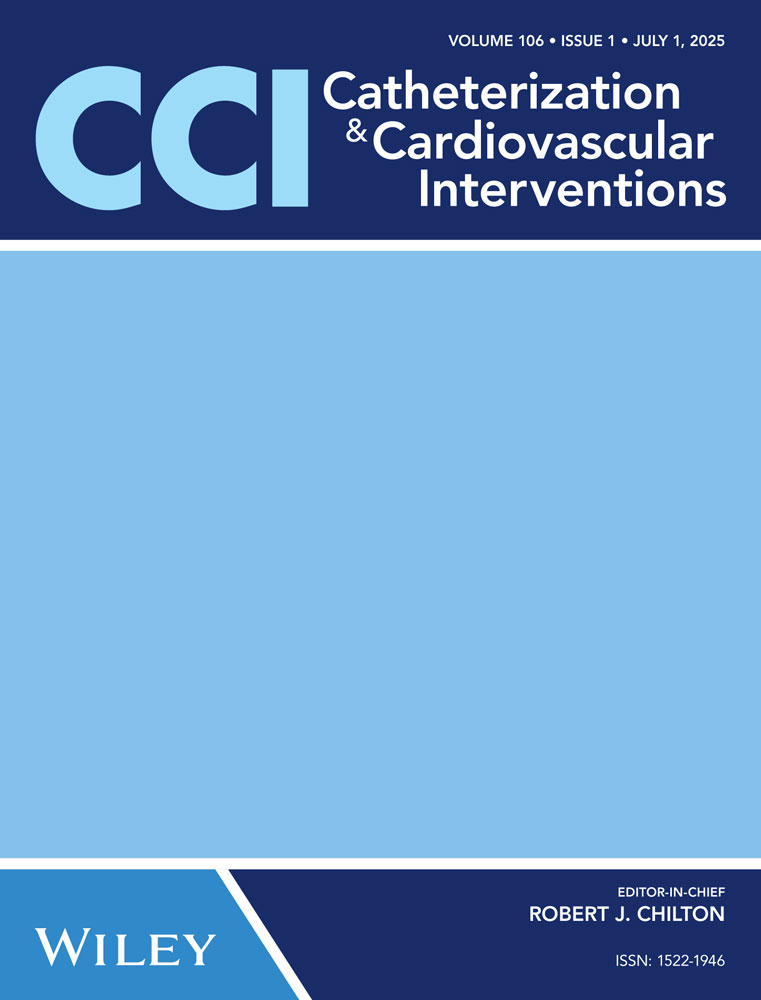Impact of D-Dimer on the Prognostic Value of PARIS Thrombosis Risk Score in Acute Coronary Syndrome Patients Undergoing PCI: From a Large Prospective Cohort Study
Xueyan Zhao and Jinqing Yuan are co-correspondence authors.
ABSTRACT
Background
Guideline-recommended PARIS thrombotic risk score predicts coronary thrombosis events (CTE) in Acute Coronary Syndrome (ACS) patients undergoing Percutaneous Coronary Intervention. We aim to evaluate whether D-dimer, a thrombotic biomarker, can predict long-term adverse events and improve the prognostic value of PARIS score.
Methods and Results
This is a post-hoc analysis on a prospective cohort of 10,724 Chinese patients undergoing PCI. Patients who presented as ACS were included and stratified according to baseline D-dimer level (cutoff 0.28 µg/mL). The primary endpoint is all-cause death. Secondary endpoints are cardiac death and CTE. A total of 5139 ACS patients with PCI were analyzed, 2735 patients had D-dimer ≥ 0.28 µg/mL, while 2404 patients had D-dimer < 0.28 µg/mL. After adjusting for confounders, patients with higher D-dimer had significantly higher risk of 5-year all-cause death (HR = 1.951, 95% CI: 1.366–2.787) and cardiac death (HR = 2.513, 95% CI: 1.574–4.012), whilst a trend toward higher risk of 5-year CTE (HR = 1.285, 95% CI: 0.956–1.729) was observed. Compared with PARIS score alone, adding D-dimer to the model increased the area under the receiver operating characteristic curve on 5-year all-cause death (0.663–0.701, p = 0.006) and cardiac death (0.652–0.699, p = 0.015), both with significant net reclassification improvement (p < 0.001).
Conclusion
In our cohort of ACS patients undergoing PCI, D-dimer independently predicts long-term all-cause death and cardiac death, and improves the predictive value of PARIS score over 5-year all-cause death and cardiac death.
Conflicts of Interest
The authors declare no conflicts of interest.
Open Research
Data Availability Statement
The data that support the findings of this study are available on request from the corresponding author. The data are not publicly available due to privacy or ethical restrictions.




